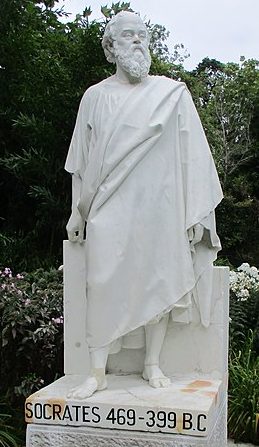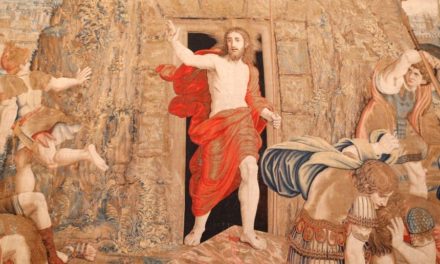OK, Otterites, it’s Wobert Wednesday time! I must say that I love that Martin has come up with this term, Otterites. Just excellent. Can’t believe we didn’t think of before now.
Also, kudos to Martin for posting about our trip to Biscuit Belly, the Official Breakfast Joint of Snakes and Otters. It was truly glorious. And Marty wasn’t kidding about the size of the hash browns. I got the Pancake Cordogs, which is a most excellent sausage link dipped in pancake batter on a stick. Pancake and sausage! On a freaking stick, people! Anyway, I ordered a side of hash browns, presuming they would be about the size of a Mickey D serving. No. It was an 8 inch plate covered edge to edge. And they were cooked in butter! It was totally delish.
As I said last week, we’re going to be doing some exploring of philosophy topics with Wobert Wednesday. Why is philosophy so important, you may ask? Well, everyone lives by one. Yours or someone else’s Philosophy is the attempt to give meaning to the world by natural means. Theology is the attempt to give meaning to the world through the lens of faith. Both attempts produce a code (of honor?) to live by.
Today we’re going to look at the great-great-great-great-granddaddy of all Wester philosophers: Socrates. Yeah, it’s a Wikipedia link. Deal with it. If you’re using me to write your college papers, that’s smart, but your professors probably won’t think so. They’re just jealous.

Anyway, we know of Socrates, mainly because his most famous student, Plato, wrote extensively about him. Ever heard of the Socratic Method? What do you know about it? What makes it unique? In case you’re wondering, you’ve just experienced the Socratic Method. It’s the philosophical ancestor of modern therapy. You ask questions, getting the student to respond with ever deeper answers until you get to the core. It’s a common method of teaching, that is probably no longer used by many in Academia, because it’s about true learning, rather than indoctrination.
The Socratic Method is about the search for Truth, not telling you what the Truth is in a declarative statement. Truth here is defined as what is essential or what the substance of something is. Later philosophers who where students of Socrates or students of his students would expand on this concept. Without the Socratic Method, though, I think it takes much longer to get to this idea. This method of teaching is the heart of all liberal arts in that you are taught to think for yourself. It’s not just an absorbtion of facts, figures and dates.
The idea that you can get to the essential heart of a matter and the Truth of it is the heart of what Snakes and Otters is all about. If you listen to us (you ARE listening, right?), you’ll quickly hear us question each other and answer. Each round diving deeper into the substance of an idea. Substance is not just stuff. It’s way more than that. Substance is the actual and metaphysical reality of something, not just what something appears to be on the surface.
The importance of this cannot be underestimated. Socrates and probably his teachers before him were teaching something that Theology has told us from the beginning; but he’s doing it from the perspective of reason and the natural world. In other words, you can reason your way to existential and ontological truths. These are things that are not seen, but are the true substance of reality. An example of this is the Catholic doctrine of Transubstantiation, where the bread and wine offered at Mass are changed into the Body and Blood of Christ. Not as a symbol, but in substance. The substance has been transmuted, hence the term, Transubstantiation. What appears as bread and wine are merely the accidents or the external appearance. They are not as important as the substance which is now transformed.
Let’s apply this concept to a modern issue like race. Each “race” has differing external characteristics. These are the accidents. But what of the substance? Since a race is defined by the accidents or external characteristics, they are meaningless in helping us determine the substance. In fact, can you determine essential truth of a group of individuals? Perhaps of animals who do not think or act based on anything besides instinct you can. Can you do that for a thinking, feeling group of individual with different backgrounds, cultures, upbringings, values, religions, goals and dreams? If so, how? In what way can you get to their substance?
I would propose you could only do so by looking at what is common to all in that group. This would begin with biology, for instance. Male and female. Physical expressions here are secondary to that. What else? What about the ability to think and assign value to things and people? That would be a good one, too. What about the ability to dream, not just when asleep, but of the future? To plan and work toward something? That’s a good one as well. Finally, at least for this discussion, what about the ability to create? Not reproduction, but that’s true too. Rather, the ability to come up with words and images and sounds that create something new. A story essentially. All creative endeavors tell a story of some kind. Even random, pleasant music or images will generate a story in our minds. Take Beethoven’s Fifth Symphony, for example. No words, but I have specific images of running through the forest for much of that first movement.
So, male and female, thinking and valuing, dreaming and creating. These are the common substances of all humanity, not just one group with common physical feature. Based on this, how can anyone say we are not created equal as it says in the Declaration of Independence? How can we not say we are created in the image and likeness of God Himself? These all say the same thing, that at our core we are different and have worth because we exist.
When that is part of our core philosophy, and is not violated, society is a far different thing than when we don’t value one another just because we’re all human beings. That leads to tribalism and nationalism. We associate tribalism with the political left and nationalism with the political right, but they’re two sides of the same coin. Tribalism reduces us to smaller and smaller groups based on external characteristics. Nationalism reduces us to smaller and smaller groups based on geography, also an external circumstance. Neither is good or proper. Both end up in the same place, chaos, disorder and strife. Both will lead to despotism.
Socrates would be ashamed of us.
* UtDicitur, CC BY-SA 4.0 https://creativecommons.org/licenses/by-sa/4.0, via Wikimedia Commons




